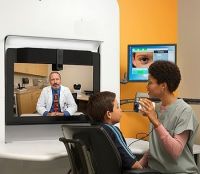Electronic health records (EHRs) may be important to have a more high-tech and transparent healthcare system, but new research reveals that using EHRs was not associated with better quality of care or clinical outcomes for ischaemic stroke patients.
The study, reported in the Journal of the American College of Cardiology, analysed data of 626,473 patients from 1,236 US hospitals in Get With the Guidelines-Stroke programme between 2007 and 2010. Researchers compared quality and outcome measures for ischaemic stroke patients in hospitals with EHR systems to those without. Outcomes for the study included: a composite “all-or-none” quality performance measure, “which required that a patient received each of the achievement measures for which he or she was eligible;” length of stay greater than four days; discharge home; and in-hospital mortality.
The researchers found that after controlling for patient and hospital characteristics, having an EHR system was not associated with higher quality of care, more patients discharged home or lower in-hospital mortality rates. However, patients admitted to hospitals with EHRs were slightly less likely to have a prolonged hospital stay.
"EHRs do not appear to be sufficient, at least as currently implemented, to improve overall quality of care or outcomes for this important disease," says lead author Karen E. Joynt, MD, MPH, a cardiologist at Brigham and Women's Hospital and Harvard Medical School in Boston.
Dr. Joynt and colleagues note that “further work to ensure that [EHRs] are better integrated with care is critical … Our focus should turn to leveraging these tools to their fullest capabilities to improve quality of care and patient outcomes for stroke.”
They cite some limitations of the study, including that the hospitals evaluated were a group already committed to quality improvement and not representative of hospitals in general; that all study hospitals were using a Get With the Guidelines tool that may dilute the effect of EHR-based tools; and that the study only looked at one type of stroke patient.
In an accompanying editorial, John R. Windle, MD, professor and chief of cardiology at University of Nebraska Medical Center, says EHRs have not been shown to help achieve the Triple Aim of healthcare systems: improving the quality of healthcare, the health of populations and the efficiency of healthcare systems.
"An EHR's first priority must be support of clinical care, not documentation for billing and reimbursement that adds a burden translatable into neither value, nor patient health or safety," Dr. Windle explains. "The work by Joynt et al. is a wake-up call that we should heed."
Source: American College of Cardiology
Image Credit: Flickr.com
The study, reported in the Journal of the American College of Cardiology, analysed data of 626,473 patients from 1,236 US hospitals in Get With the Guidelines-Stroke programme between 2007 and 2010. Researchers compared quality and outcome measures for ischaemic stroke patients in hospitals with EHR systems to those without. Outcomes for the study included: a composite “all-or-none” quality performance measure, “which required that a patient received each of the achievement measures for which he or she was eligible;” length of stay greater than four days; discharge home; and in-hospital mortality.
The researchers found that after controlling for patient and hospital characteristics, having an EHR system was not associated with higher quality of care, more patients discharged home or lower in-hospital mortality rates. However, patients admitted to hospitals with EHRs were slightly less likely to have a prolonged hospital stay.
"EHRs do not appear to be sufficient, at least as currently implemented, to improve overall quality of care or outcomes for this important disease," says lead author Karen E. Joynt, MD, MPH, a cardiologist at Brigham and Women's Hospital and Harvard Medical School in Boston.
Dr. Joynt and colleagues note that “further work to ensure that [EHRs] are better integrated with care is critical … Our focus should turn to leveraging these tools to their fullest capabilities to improve quality of care and patient outcomes for stroke.”
They cite some limitations of the study, including that the hospitals evaluated were a group already committed to quality improvement and not representative of hospitals in general; that all study hospitals were using a Get With the Guidelines tool that may dilute the effect of EHR-based tools; and that the study only looked at one type of stroke patient.
In an accompanying editorial, John R. Windle, MD, professor and chief of cardiology at University of Nebraska Medical Center, says EHRs have not been shown to help achieve the Triple Aim of healthcare systems: improving the quality of healthcare, the health of populations and the efficiency of healthcare systems.
"An EHR's first priority must be support of clinical care, not documentation for billing and reimbursement that adds a burden translatable into neither value, nor patient health or safety," Dr. Windle explains. "The work by Joynt et al. is a wake-up call that we should heed."
Source: American College of Cardiology
Image Credit: Flickr.com
Latest Articles
healthmanagement, ischaemic stroke, EHR, electronic health record, quality of care, hospital stay
New research reveals that using EHRs was not associated with better quality of care or clinical outcomes for ischaemic stroke patients.



























